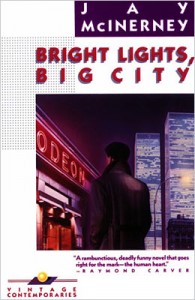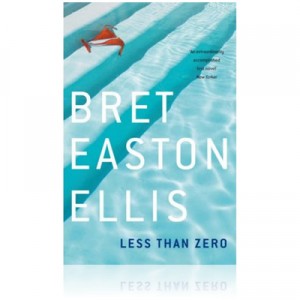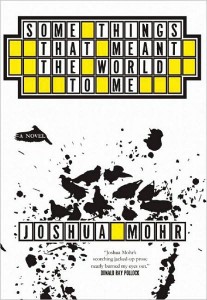
The Sick in Quixotic
Fifteen years ago, when asked to explain the unprecedented and unanticipated success of Nirvana’s Nevermind album, an editor at SPIN magazine suggested that the music industry had simply ignored people in their twenties for far too long. Whether he was right or not, there are times when it feels like the novel-publishing industry ignores those of us in our thirties. Looking over the New York Times Bestseller list this week, I see a gap of sorts—between the vampire romances and the misadventures of baby-boomer academics at a Cape Cod wedding—and I can’t help but think it’s defined by age. If our parents’ generation has finally ceded the presidency, they still have the literary novel locked up.
And that’s to their credit. If we’re being ignored, we may have ourselves to blame. Americans in their thirties—particularly we males—are barely willing to pay for our music anymore; we’d sooner join a video-gaming society than a book club, and we purchase new cell phones more often than new hardcovers. I don’t mean to moralize, and I certainly won’t hold my breath waiting for some sleeper success—the literary equivalent of the aforementioned rock band—to come along and redeem us. But if you’re one of those anachronistic thirty-somethings that still quaintly reads books—let alone, a nineteenth- and twentieth-century form like the novel—then you may know the rare and exquisite pleasure of stumbling across one that seems to be written by, for, and about your contemporaries. I had that experience recently when I read Joshua Mohr’s debut novel.
Some Things That Meant the World to Me (Two Dollar Radio, 2009) is the unsettling story of a thirty-year-old San Francisco man named Rhonda, who suffers from depersonalization disorder after a childhood of abandonment and abuse. In between cue-stick beatings, Rorschach tattoos, and botched batches of home-brew wine, he discovers a portal to his past in the dumpster behind a local taquería.
It’s often a plot pitfall when storytellers defer to traumatic childhood episodes once the present-tense drama wanes. And this book does walk that line, spending as many pages in Rhonda’s childhood and adolescence as in his San Francisco here and now. But Mohr somehow manages to make the past as convincing as the main event. We want Rhonda to go backwards, through that trapdoor in the dumpster, no matter how traumatic it gets. The story’s structure resembles psychotherapy: a reluctant but fearless inventory of the past in order to piece together some sort of viable future.
If this novel were a boxer and its sentences, punches, it would be all about the jab—that most rapid and relentless of blows, but which is, in fact, a defensive maneuver. Walking another line, Mohr combines the best visceral elements of hard-eyed realism with all the surprises and surreal imagery due a narrator who’s both mentally ill and chronically drunk. Hallucinations and nightmares are present, but sparing. Rhonda’s depersonalization disorder is never a cheap trick. Imagine Fight Club if you were told about the schizophrenia on the first page, none of the personalities were as pretty as Brad Pitt, and the narrator spent the rest of the book with the gun in his mouth.
The energetic prose and the number of scenes in bars will likely draw comparisons to Bright Lights, Big City or perhaps Less Than Zero. Indeed, Mohr’s novel shares traits with the so-called ‘literary brat pack’ of the 1980s: urban aesthetics, self-loathing, an unflinching focus on character which often eclipses narrative. Rhonda, however, is working with a smaller budget, a bigger heart, and deeper scars. Initial reviews of Some Things That Meant the World to Me have brought up Jesus’ Son, which is a sound comparison. However, die-hard Denis Johnson fans will find more common ground with his Resuscitation of a Hanged Man—that underrated benchmark for putting the sick back in quixotic.
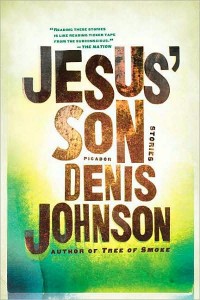
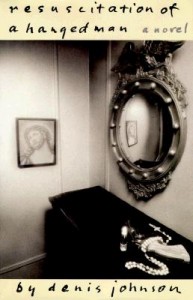
Make no mistake: I’m not sad that Mohr’s novel isn’t on the summer bestseller lists. I’m hopeful that, as storytelling moves into the twenty-first century, I’ll have more experiences like one I had with this book: the discovery of an overlooked voice, which resonates and makes me feel less alone. After all, to borrow one last parallel from music: we wouldn’t buy the same records as our parents, so why should we buy the same novels?
Tyler McMahon teaches fiction writing at Hawai‘i Pacific University in Honolulu.
Further Resources
– Watch Joshua Mohr read from his short story “Family”:
– Here are two more glowing reviews of Some Things That Meant the World to Me: by Darby Dixon III, for The Collagist / by Sheila Ashdown, for Powell’s.
– Mohr writes for The Rumpus; check out his features, including an interview with Joe Meno.
– At Largehearted Boy, here is Mohr’s playlist for Some Things That Meant the World to Me
– San Francisco-based writers, catch Mohr at a reading next month, or sign up for a class with him at the Writing Salon. The next one begins in October: “Honing the Art of Storytelling”.

